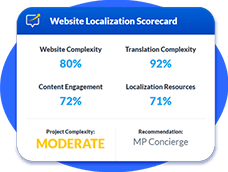Video  Aug 23, 2024
Aug 23, 2024
What Is Transnational Strategy
Have you ever wondered how a company can be everywhere and still fit in like a local? Welcome to the world of transnational strategy.
At its core, a transnational strategy combines high local responsiveness and high global integration. High local responsiveness means tailoring products and services to fit local tastes and preferences, while high global integration involves maintaining consistent aspects across all markets while also setting up local offices and supply chains to create efficiencies. It’s a balancing act, but when done right, it can lead to incredible global success.
So when a marketing manager suggests, hey, let’s serve the same coffee everywhere. Everyone loves coffee. Right? Your CEO might say, good thought, but to really blend in, we need a transnational strategy.
So let’s adjust our offerings to match local tastes. Right? In Italy, we’ll add espresso shots and tiramisu, while in Japan, it’s gonna be matcha lattes and sushi oils. We need to adapt to local flavors.
But wait, but wait. High global integration means keeping some things consistent. So our logo, coffee cups, and core menu, they stay the same, making our brand more recognizable.
When in Rome, do as the Romans did.
But make sure they know it’s still our coffee. So in Brazil, we’ll serve cavesinho and parloccaso, but in our signature cups. Exactly. So you get it. You’ll have to use the same machines everywhere to stay efficient, but let the local branches decide the daily specials. And by using translation technology, our marketing stays consistent yet adaptable.
And there you have it. With a transnational strategy, our coffee shop becomes a local favorite in every country. That does it for today, folks. And until next time, keep marketing like there’s no manana.
Categories: Website Translation, Marketer, Streamline Operations, Optimize Performance, Video





Share: